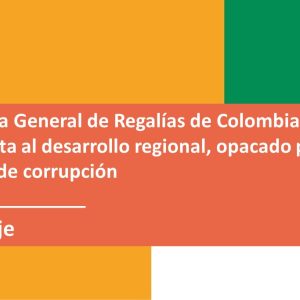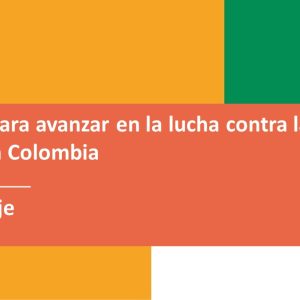This Thursday, the Full Chamber of the Third Section of the Council of State began to study a report in order to define the feasibility of developing fracking projects in the country. In the session held, Judge Ramiro Pazos presented his paper; however, the debate was postponed until next week.
The process that has been in this Corporation for a little more than four years and on which the magistrates will debate, is related to a lawsuit against Decree 3004 of 2013 and Resolution 90341 of 2014, which establish the criteria for the exploration and exploitation of hydrocarbons in unconventional deposits through this controversial technique.
According to the Fracking-Free Colombia Alliance, the judicial branch is one of the last hopes that Colombians have to be heard and participate in environmental issues that affect them so much.
For this reason, the riparian communities of Magdalena Medio are pinning all their hopes on the decision of the High Corporation.
For environmentalists, due to its environmental, social and climatic importance, the decision in the hands of the judges is historic. According to the organization, if the administrative court rules taking into account two expert reports from the National University and a plea from the Attorney General’s Office, the regulations would not have much chance of remaining in force.
Third public hearing in Congress
And while the country was waiting for the decisions that the High Court might make, the Fifth Commission of the House of Representatives held the last public hearing to debate the bills that seek the prohibition of this technique in the country. There again, international experts called attention to the inconvenience of this practice being carried out in the national territory.
The rapporteur expressed that “the approval of a bill whose purpose would be to put an end to the exploration and exploitation of unconventional oilfields, prohibiting practices such as the frackingwould be a valuable measure of environmental protection, prevention of socio-environmental conflicts and compliance with the commitments arising from the Paris Agreement, as well as the Inter-American System itself and the important advisory opinion No. 23 of the Inter-American Court of Human Rights regarding the right to a healthy environment”.
The official called on Congress to take all measures that, in addition to avoiding massive greenhouse gas emissions, promote respect for and implementation of real actions to guarantee social, economic, cultural and environmental rights.
However, she was not the only one. Héctor de la Torre, of the California Air Resources Board, the air quality agency of this U.S. state, one of the largest oil producers in that country, asked that Colombia should not make the same mistakes as this state, neither with experiments nor with production.
“These are projects that generate many negative effects on the communities where they are carried out and on the environment. We are talking about acids, chemicals, sand and high water demand, all of which end up impacting the environment,” he said.
Thus, voices continue to be heard regarding the approval by the Legislature of the projects that propose the prohibition of this technique, but for now it will be the Judicial Branch that will make the decision.


